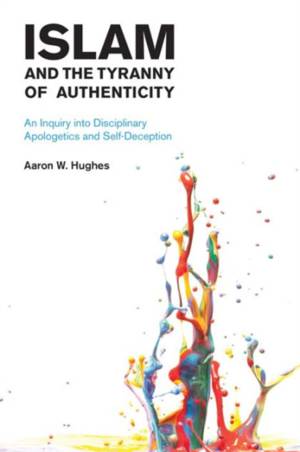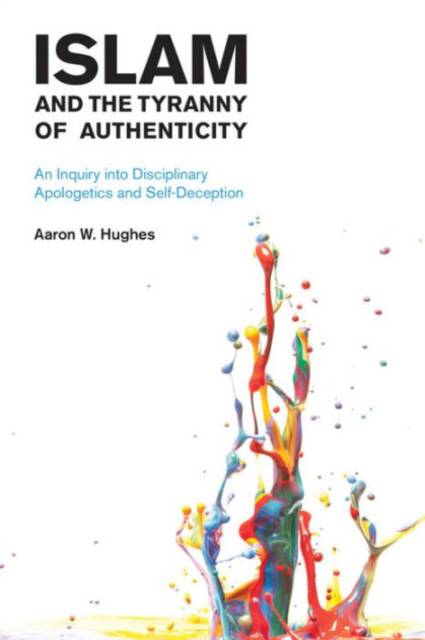
- Afhalen na 1 uur in een winkel met voorraad
- Gratis thuislevering in België vanaf € 30
- Ruim aanbod met 7 miljoen producten
- Afhalen na 1 uur in een winkel met voorraad
- Gratis thuislevering in België vanaf € 30
- Ruim aanbod met 7 miljoen producten
Zoeken
Islam and the Tyranny of Authenticity
An Inquiry Into Disciplinary Apologetics
Aaron W Hughes
Paperback | Engels
€ 48,45
+ 96 punten
Uitvoering
Omschrijving
Many scholars of Islam are interested in creating a liberal, inclusive, pluralistic, feminist, and modern version of the religion that they believe to be explicit in the pages of the Quran, but missed by earlier interpreters. In so doing, they create good Islam and, in the process, seek to define what does and does not get to count as authentic. As the purveyors of what they now believe to be veritable Islam, they subsequently claim that rival presentations are bastardizations based either on Orientalism and Islamophobia (if one is a non-Muslim) or misogyny and homophobia (if one is a Muslim that disagrees with them). Instead of engaging in critical scholarship, they engage in a constructive and theological project that they deceive themselves into thinking is both analytical and empirical. This book provides a hard-hitting examination of the spiritual motivations, rhetorical moves, and political implications associated with these apologetical discourses. It argues that what is at stake is relevance, and examines the consequences of engaging in mythopoesis as opposed to scholarship.
Specificaties
Betrokkenen
- Auteur(s):
- Uitgeverij:
Inhoud
- Aantal bladzijden:
- 164
- Taal:
- Engels
Eigenschappen
- Productcode (EAN):
- 9781781792179
- Verschijningsdatum:
- 1/01/2016
- Uitvoering:
- Paperback
- Formaat:
- Trade paperback (VS)
- Afmetingen:
- 155 mm x 231 mm
- Gewicht:
- 272 g

Alleen bij Standaard Boekhandel
+ 96 punten op je klantenkaart van Standaard Boekhandel
Beoordelingen
We publiceren alleen reviews die voldoen aan de voorwaarden voor reviews. Bekijk onze voorwaarden voor reviews.








